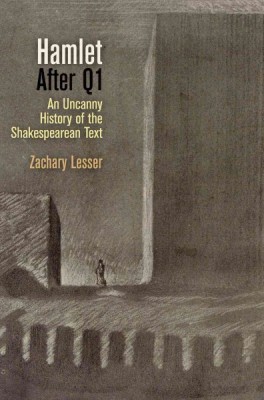| Hamlet After Q1: An Uncanny History of the Shakespearean Text Contributor(s): Lesser, Zachary (Author) |
|
 |
ISBN: 081222356X ISBN-13: 9780812223569 Publisher: University of Pennsylvania Press OUR PRICE: $33.20 Product Type: Paperback - Other Formats Published: January 2016 |
| Additional Information |
| BISAC Categories: - Literary Criticism | Shakespeare - Drama | Shakespeare |
| Dewey: 822.33 |
| Series: Material Texts |
| Physical Information: 0.68" H x 6" W x 9" (0.99 lbs) 304 pages |
| Themes: - Cultural Region - British Isles |
| Descriptions, Reviews, Etc. |
| Publisher Description: In 1823, Sir Henry Bunbury discovered a badly bound volume of twelve Shakespeare plays in a closet of his manor house. Nearly all of the plays were first editions, but one stood out as extraordinary: a previously unknown text of Hamlet that predated all other versions. Suddenly, the world had to grapple with a radically new--or rather, old--Hamlet in which the characters, plot, and poetry of Shakespeare's most famous play were profoundly and strangely transformed. Q1, as the text is known, has been declared a rough draft, a shorthand piracy, a memorial reconstruction, and a pre-Shakespearean ur-Hamlet, among other things. Flickering between two historical moments--its publication in Shakespeare's early seventeenth century and its rediscovery in Bunbury's early nineteenth--Q1 is both the first and last Hamlet. Because this text became widely known only after the familiar version of the play had reached the pinnacle of English literature, its reception has entirely depended on this uncanny temporal oscillation; so too has its ongoing influence on twentieth- and twenty-first-century ideas of the play. Zachary Lesser examines how the improbable discovery of Q1 has forced readers to reconsider accepted truths about Shakespeare as an author and about the nature of Shakespeare's texts. In telling the story of this mysterious quarto and tracing the debates in newspapers, London theaters, and scholarly journals that followed its discovery, Lesser offers brilliant new insights on what we think we mean when we talk about Hamlet. |